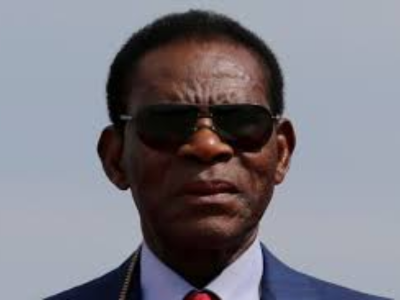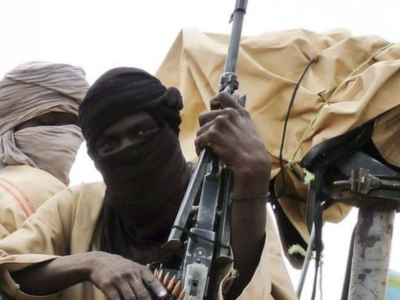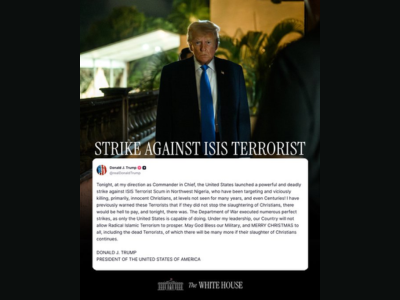Nigeria Rejects U.S. Religious Freedom Designation as Misleading, Urges Constructive Engagement
- by Editor.
- Nov 01, 2025

Credit:
The Federal Government of Nigeria has formally rejected the United States’ redesignation of the country as a “Country of Particular Concern” (CPC) under the International Religious Freedom Act, describing the move as “inaccurate and misleading.”
The designation, announced by U.S. President Donald Trump on October 31, 2025, cites alleged widespread persecution of Christians and revives a label first applied in 2020 but later dropped under the Biden administration.
In a statement issued Saturday, November 1, by Foreign Ministry spokesperson Kimiebi Ebienfa, Nigeria reaffirmed its commitment to religious tolerance and interfaith harmony. The government emphasized that violence in parts of the country stems from complex socio-economic and ethnic factors, not systematic religious persecution. “Reports fail to capture our complex realities,” Ebienfa stated, warning that exaggerated narratives risk inflaming communal tensions and undermining national unity.
President Trump’s announcement, shared via Truth Social and amplified by the White House’s official channels, cited “thousands” of Christian deaths attributed to Boko Haram and Fulani militias. He called on Congress—specifically Rep. Riley Moore (R-WV) and House Rules Chairman Tom Cole (R-OK)—to investigate arms flows to extremist groups and explore sanctions against complicit actors.
U.S. Secretary of State Marco Rubio echoed the concerns, pledging action against what he described as “wanton destruction” and reaffirming support for religious freedom. The designation could trigger aid restrictions and visa bans, though specific measures remain under congressional review.
While some Nigerian commentators welcomed the renewed scrutiny, senior officials pushed back. Information Minister Mohammed Idris previously described related data as “faulty,” noting that extremist violence affects both Christian and Muslim communities. The government reiterated its commitment to counterterrorism efforts that protect all citizens, regardless of faith.
The controversy follows heightened global attention after a viral video showed the mass burial of 11 victims in Heipang, Plateau State. Advocacy groups have cited rising insecurity in the Middle Belt and northern regions, but Abuja maintains that the conflict is driven by resource competition and criminality, not religious targeting.
As diplomatic tensions rise, Nigeria has pledged continued cooperation with the United States on shared security and development goals, while resisting external pressure that oversimplifies its internal challenges.













0 Comment(s)